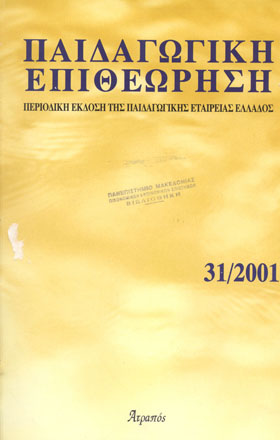Η ελληνική μεταρρύθμιση ''Εκπαίδευση 2000 - Παιδεία Ανοικτών Οριζόντων΄': μια συγκριτική θεώρηση
Main Article Content
Περίληψη
The paper uses five comparative tools (the theories of functionalism and conflict, the theoretical frameworks of modernity and post modernity, the contemporary international discourse on educational reform, the rationale of recent major educational reforms in Anglo - American Democracies, and the OECD 1995 Critical Survey on Education in Greece) to try to uncover the identity of the 1997 major Greek education reform "Education 2000 - For an Education of Open Horizons". The comparison shows that the Greek reform is to a great extent governed by functionalist and modern (rather than postmodern) ideas and that it diverges substantially from the major reforms in USA, Canada and UK. It also shows that the reform has failed to take notice of some major recommendations set forth by the OECD Survey concerning the need for educational decentralization and school autonomy. The paper explains these divergences as the result of fundamental characteristics of Greek society, the substantial legitimacy deficits of the modern Greek state, and the traditional big power of teacher trade unions in Greece. The paper concludes that unless these characteristics are modified there is little chance for educational reforms to succeed in Greece.
Article Details
Τεύχος
Ενότητα
Άρθρα
